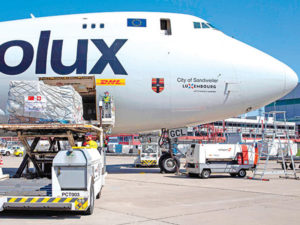Improvement remains slow amid insufficient capacity
The International Air Transport Association (IATA) released data for global air freight markets in August 2020 showing that improvement remains slow amid insufficient capacity.

Demand moved slightly in a positive direction month-on-month; however, levels remain depressed compared to 2019. Improvement continues at a slower pace than some of the traditional leading indicators would suggest. This is due to the capacity constraint from the loss of available belly cargo space as passenger aircraft remain parked.
Global demand, measured in cargo tonne-kilometres (CTKs), was 12.6% below previous-year levels in August (-14% for international operations). Global capacity, measured in available cargo tonne-kilometres (ACTKs), shrank by 29.4% in August (‑31.6% for international operations) compared to the previous year.
Belly capacity for international air cargo was 67% below the levels of August 2019 owing to the withdrawal of passenger services amid the Covid-19 pandemic. This was partially offset by a 28.1% increase in dedicated freighter capacity.
“The peak season for air cargo will start in the coming weeks, but with severe capacity constraints shippers may look to alternatives such as ocean and rail to keep the global economy moving,” commented Alexandre de Juniac, Director General and CEO, IATA.
Middle Eastern carriers reported a decline of 6.8% in year-on-year international cargo volumes in August, a significant improvement from the 15.1% fall in July.
